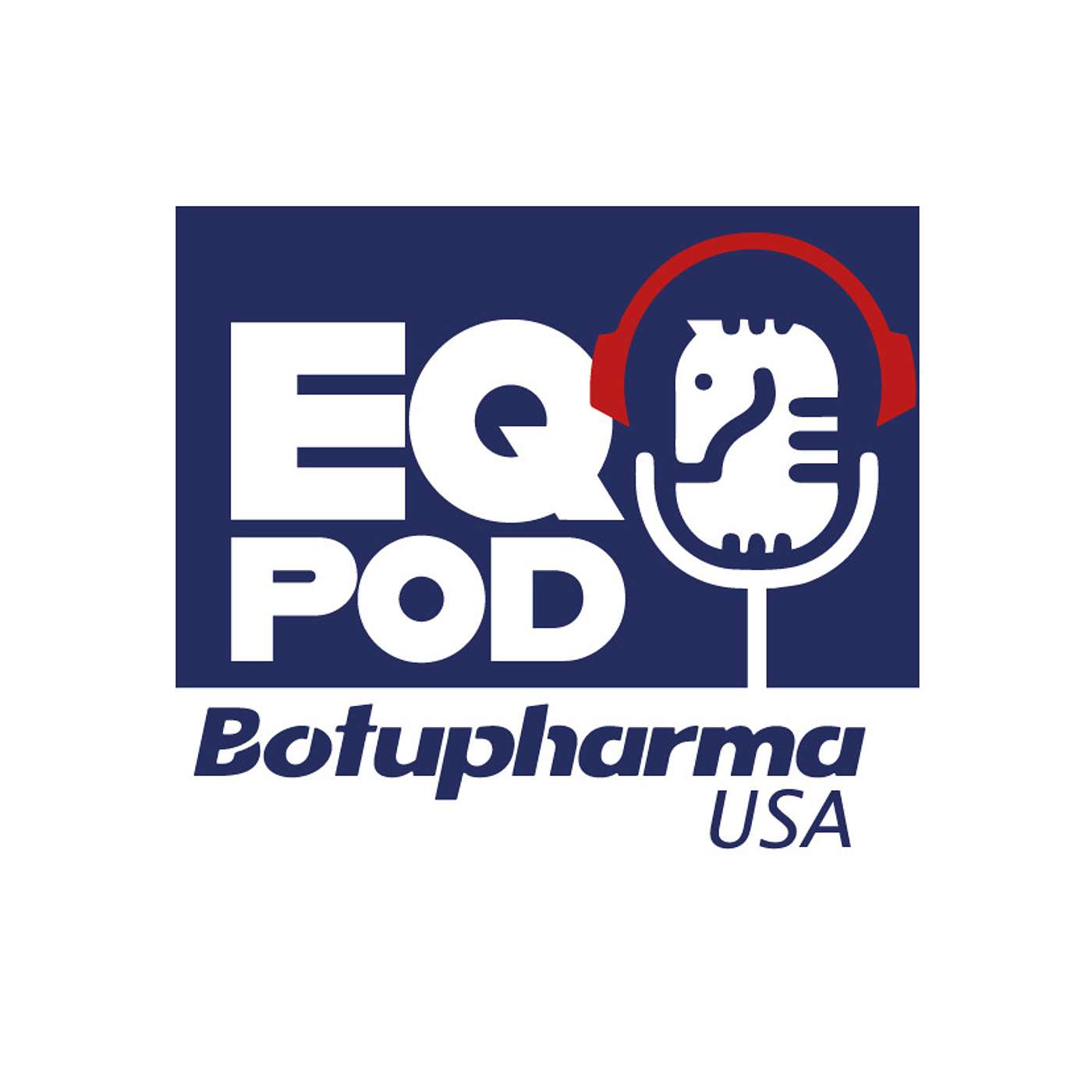
EQPOD0002 - Equine Placentitis w/ Dr. Carleigh Fedorka
05/15/24 • 40 min
Dr. Carleigh Fedorka, a specialist in reproductive immunology, discusses placentitis in horses. Placentitis is inflammation of the placenta, most commonly caused by bacteria entering through the cervix. Dr. Fedorka emphasizes the importance of early detection and monitoring of mares for signs such as premature mammary gland development and vulvar discharge. She also discusses the use of antibiotics, progestins, and anti-inflammatory medications in the treatment of placentitis. Dr. Fedorka highlights the need for research funding and support to further our understanding of the disease and develop biomarkers for diagnosis and treatment.
Dr. Carleigh Fedorka, a specialist in reproductive immunology, discusses placentitis in horses. Placentitis is inflammation of the placenta, most commonly caused by bacteria entering through the cervix. Dr. Fedorka emphasizes the importance of early detection and monitoring of mares for signs such as premature mammary gland development and vulvar discharge. She also discusses the use of antibiotics, progestins, and anti-inflammatory medications in the treatment of placentitis. Dr. Fedorka highlights the need for research funding and support to further our understanding of the disease and develop biomarkers for diagnosis and treatment.
Previous Episode

EQPOD0001 - Hormonal Cycles and Regulation of Mares
Summary
In this podcast, Joss Mottershead discusses the importance of understanding mare hormones and how they can be manipulated to manage breeding cycles. He explains the role of progesterone and estrogen in the mare's reproductive process and how they affect receptivity to the stallion. Joss also discusses the use of prostaglandins and progestins in manipulating the mare's cycle, as well as the benefits of using a progesterone and estradiol combination. He recommends additional resources, such as peer-reviewed journals and the Equine Repro Facebook group, for further information on equine reproduction.
Takeaways
Understanding mare hormones is crucial for managing breeding cycles effectively.
- Progesterone plays a role in maintaining pregnancy and resisting stallion advances.
- Estrogen promotes receptivity to the stallion and increases immune response in the reproductive tract.
- Prostaglandins can be used to manipulate the mare's cycle, but their effectiveness depends on factors such as the presence of a receptive corpus luteum.
- The combination of progesterone and estradiol can be a useful tool for synchronizing mares and optimizing breeding timing.
- The progesterone releasing intravaginal device (PRID) is an alternative method for hormone manipulation.
- Additional resources, such as peer-reviewed journals and the Equine Repro Facebook group, provide valuable information on equine reproduction.
Next Episode

EQPOD0003 - Supplementation of Mares w/ Dr. Giovana Catandi
Summary
Dr. Giovana Catandi discusses her research on the effects of dietary supplements on oocyte metabolism and reproductive outcomes in mares. In her previous study, she found that oocytes from older mares have reduced metabolic function and lower developmental potential. In her latest study, she tested the effects of dietary additives on oocyte metabolism and found that certain supplements can improve oocyte quality and increase embryo production in older mares. She recommends a combination of supplements, including L-carnitine, antioxidants, vitamins, and minerals, to improve overall mare health and fertility outcomes. The prolonged use of supplements for at least 8 weeks is recommended to see positive effects. Dr. Catandi also mentions the importance of nutrition and overall health in improving fertility outcomes in mares.
Keywords
mare reproduction, oocyte metabolism, dietary supplements, oocyte quality, embryo production, mare health, fertility outcomes, L-carnitine, antioxidants, vitamins, minerals, nutrition
Takeaways
Oocytes from older mares have reduced metabolic function and lower developmental potential.
Certain dietary supplements can improve oocyte quality and increase embryo production in older mares.
A combination of supplements, including L-carnitine, antioxidants, vitamins, and minerals, can improve overall mare health and fertility outcomes.
Prolonged use of supplements for at least 8 weeks is recommended to see positive effects.
Nutrition and overall health play a crucial role in improving fertility outcomes in mares.
Chapters
00:00 Introduction and Background
02:25 Study on Oocyte Metabolism in Older Mares
06:00 Effects of Dietary Supplements on Oocyte Quality
09:24 Practical Recommendations for Horse Breeders and Veterinarians
14:05 Key Ingredients in Dietary Supplements
18:29 How Supplements Reach the Oocyte
22:17 Duration and Timing of Supplement Use
24:08 Supplementation for Middle-Aged Mares
26:44 Importance of Overall Nutrition and Health
29:22 Future Research and Transgenerational Effects
32:40 Conclusion and Call for Further Research
If you like this episode you’ll love
Episode Comments
Generate a badge
Get a badge for your website that links back to this episode
<a href="https://goodpods.com/podcasts/eqpod-by-botupharma-usa-658181/eqpod0002-equine-placentitis-w-dr-carleigh-fedorka-86551874"> <img src="https://storage.googleapis.com/goodpods-images-bucket/badges/generic-badge-1.svg" alt="listen to eqpod0002 - equine placentitis w/ dr. carleigh fedorka on goodpods" style="width: 225px" /> </a>
Copy




